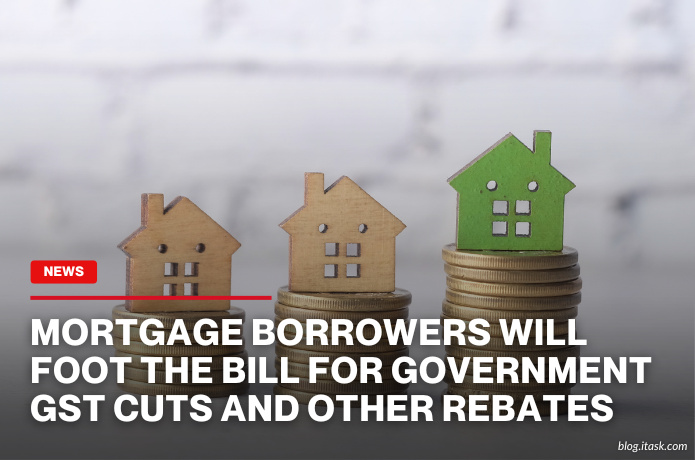Mortgage borrowers will foot the bill for government GST cuts and other rebates
Mortgage borrowers will foot the bill for government GST cuts and other rebates

Recent government initiatives aimed at reducing the Goods and Services Tax (GST) and introducing various rebates are expected to have unintended consequences for mortgage borrowers. These fiscal measures, designed to provide financial relief to Canadians, may inadvertently lead to increased costs for those with home loans.
The government's decision to cut the GST is intended to stimulate economic activity by lowering the cost of goods and services. However, this reduction could result in decreased revenue for the government, necessitating alternative sources of income to offset the shortfall. One potential outcome is the adjustment of interest rates or the introduction of new fees that directly impact mortgage holders.
Similarly, while rebates are designed to put money back into the pockets of Canadians, funding these programs requires substantial government expenditure. To balance the budget, the government may consider measures that could indirectly affect mortgage borrowers, such as reducing funding to housing programs or increasing borrowing costs.
Mortgage borrowers should be aware of these potential implications. Financial institutions may adjust their lending practices in response to government fiscal policies, potentially leading to higher interest rates or stricter borrowing requirements. This could make it more challenging for individuals to secure favorable mortgage terms or refinance existing loans.
Experts advise mortgage holders to stay informed about policy changes and consider consulting financial advisors to understand how these developments might affect their personal finances. Proactive measures, such as locking in current interest rates or exploring fixed-rate mortgage options, could provide some protection against potential cost increases.
In conclusion, while government efforts to reduce the GST and provide rebates aim to support the economy and offer relief to Canadians, mortgage borrowers should remain vigilant. Understanding the broader economic implications of these policies is essential to navigate potential challenges in the housing market and maintain financial stability.
